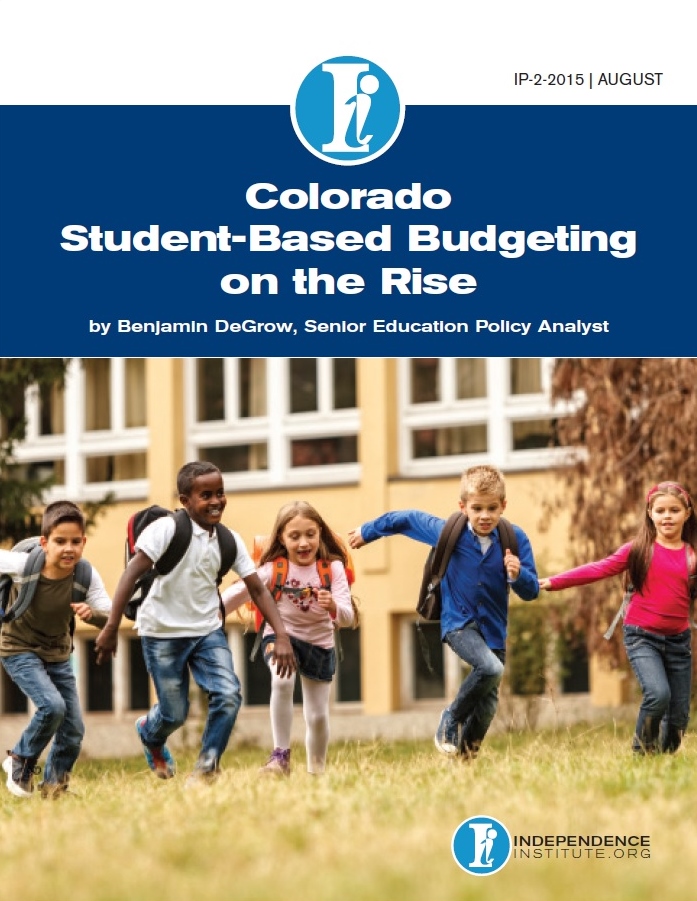IP-2-2015 (August 2015)
Author: Ben DeGrow
PDF of full Issue Paper
Scribd version of full Issue Paper
Executive Summary
How school districts budget matters. Colorado local K-12 agencies are at the forefront of improving how resources are distributed to benefit students more directly and efficiently. Through student-based budgeting (SBB), six school districts have prioritized student need over administrative convenience with a cost-effective approach that places more funds under individual school control. SBB promotes the following established benefits:
- Transparency: to show more clearly how many funds are distributed to individual schools, and for which purposes
- Equity: to ensure a rough parity of funds distributed based on actual identified student need
- Flexibility: to give school leaders and communities the power and responsibility to make more program decisions with budgeted dollars
In essence, SBB extends Colorado’s established system of “local control” beyond district headquarters to decision-makers closer to individual students. It also bolsters parental choice, by directing more dollars to follow students directly to where they learn. Budgeting system upgrades often are motivated by a combination of strong leadership, provider competition, and (real or perceived) resource constraints. Smart implementation requires broad engagement and careful inquiry into existing conditions, along with a number of critical policy options.
Falcon School District 49 in Colorado Springs has developed and enacted the state’s most robust system of SBB, which works in conjunction with the district’s unique model of decentralized innovation. Under the guidance of a forward-thinking chief budget officer, the low-funded district gradually has unveiled a system that significantly expands the potential to serve individual student needs through greatly empowered local decision-making. Other districts have crafted their own versions of SBB to achieve various benefits:
- The state’s first SBB district, Poudre has adjusted its weighted funding system based on careful feedback from school leaders and community members.
- Denver continues to expand autonomy with a thoughtful process, detailed formula, and related initiatives to measure school performance and promote parental choice.
- Douglas County leaders have used SBB to build a culture that empowers individual schools to save funds for local priorities.
- Adams 12 has communicated clearly its work to enhance principals’ budgeting authority.
- Jefferson County is taking a sizable but carefully planned jump into SBB in 2015-16.
All districts looking to adopt or enhance SBB systems ought to consider pursuing the following best practices in order to maximize benefits:
- Employ detailed accounting to make allocation opportunities more apparent.
- Communicate clearly and consistently to build broad support among the community.
- Phase out “crutches” that hold back resources from aligning with student needs.
- Find more room for autonomy in spending authority and revenue streams.
- Provide for carryover so schools can save funds for locally chosen priorities.
- Empower choice and portability for parents to match resources more responsively.
- Incorporate academic weights to motivate improvement and to reward success.
- Re-examine actual, rather than average, teacher salaries in order to level the playing field and give individual schools more purchasing flexibility.
Led by Falcon 49, a growing number of Colorado local K-12 agencies have set the pace for student-based budgeting standard to increase transparency, equity, and flexibility in how resources are used. More opportunities lie ahead for these school districts and other adopters to expand and accelerate its benefits.









